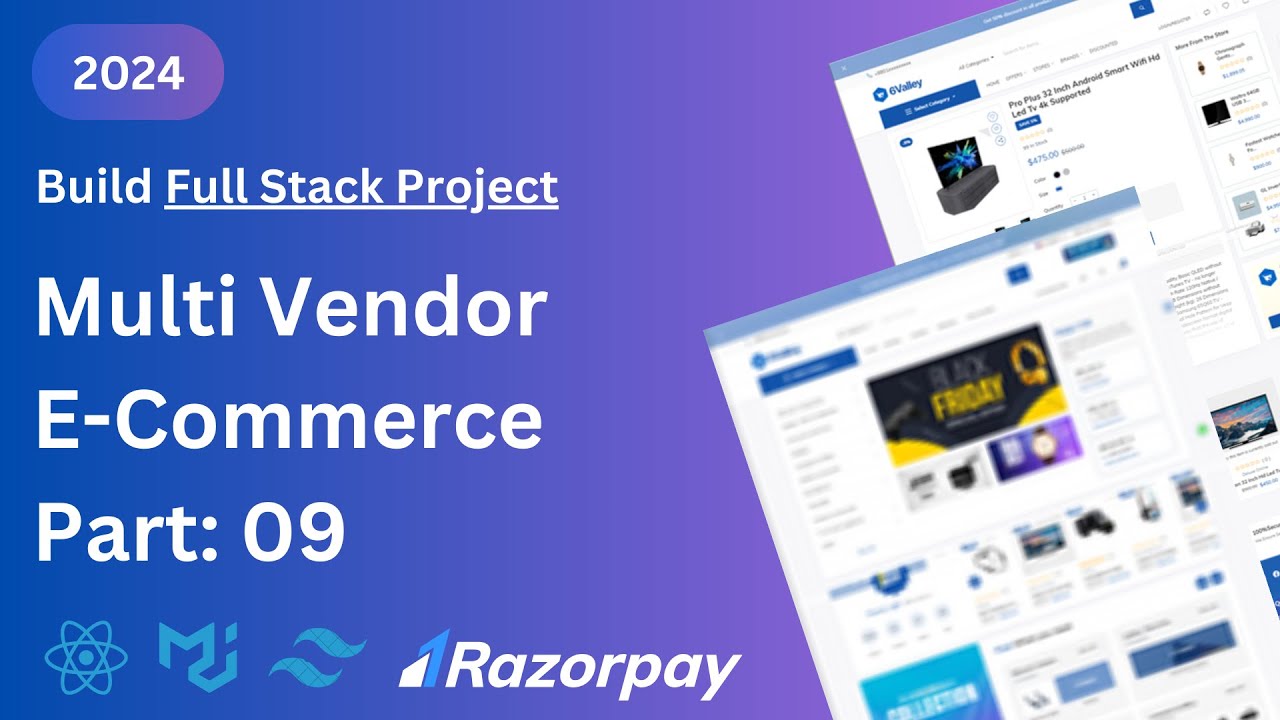Building a Full Stack E-Commerce Site with AI | Part 9 #mernstack #coding
Education

Introduction
In this article, we will continue to develop our full-stack e-commerce application using the MERN stack and integrate AI features. Our focus for this part is creating a side section for displaying top-rated products, along with implementing a tab system for product reviews and details.
Step 1: Setting up the Product Display
Formatting the Document: Begin by formatting the document and accessing the
GD(Grid Design) component. Create a box component with properties set for name equal tobcyByB.Grid Layout: Set up the spacing and grid items. For our layout:
- Define a grid item layout with spacing set to 12.
- Create a box for the last name, then add an image component with specific width and height (100 pixels).
Checking Image Display: Inspect if the image appears correctly on the page. Confirm functionality with a placeholder image or path.
Adding Image and Product Details: Inside the grid item, insert the image and product name (e.g., "Samsung"), followed by a rating component. Make sure the rating is set to read-only with a value of four.
Price Display: Create a price display below the product name, ensuring the styling matches your design (using relevant text color classes).
Step 2: Creating Top-Rated Products Section
Accessing Products: Modify the
Top Rated Productscomponent to pull images and product details correctly. Update any missing data.Tab System Implementation: Navigate to the recommended products section, and create a boxed layout for tabs, integrating the
TabContextandTabPanel.Adding Product and Reviews Tabs: Define two tabs: "Product Details" and "Reviews". Focus on styling with consistent spacing and class names for responsive design.
Product Detail Section: For the product details tab, introduce a box that displays specific details about the product. Use appropriate typography settings to enhance user experience.
Reviews Section: In the reviews tab, create a responsive grid layout that starts with a message for when there are no reviews available, followed by a section that lists existing reviews if any.
Step 3: Enhancing Review Features
UI for Review Display: Create a visually appealing layout for displaying reviews, including titles, star ratings, and user comments.
Rating Component: Next, integrate a rating component to display how many stars each review has. Ensure that it displays correctly with appropriate values.
Progress Bar for Ratings: To provide a visual representation of rating distribution, implement a progress bar that tracks the number of reviews for each star rating.
Step 4: Final Touches
Styling and Responsiveness: Review and finalize the CSS styles to ensure that all components are responsive across various devices.
Pending Features: Take note of any popup features or additional functionalities that need to be added later on.
With these steps, you will have a functional side section that showcases top-rated products and incorporates a robust tab system for user reviews.
Keywords
- Full Stack
- E-Commerce
- MERN Stack
- AI Integration
- Responsive Design
- Product Details
- Reviews Tab
- Progress Bar
- Grid Layout
- Rating Component
FAQ
1. What stack is being used for this e-commerce site?
- The e-commerce site is built using the MERN stack, which includes MongoDB, ExpressJS, ReactJS, and Node.js.
2. How do you implement a tab system in your application?
- A tab system is implemented using components like
TabContextandTabPanelto handle the switching between product details and reviews.
3. How are product ratings displayed?
- Product ratings are displayed using a rating component that shows star ratings, along with a progress bar for visual representation.
4. What should I consider to make the application responsive?
- Ensure that your grid layout and spacing adapt to different screen sizes using CSS Flexbox or Grid properties.
5. Is there a feature for user reviews?
- Yes, the application includes a dedicated tab for reviews, where users can see past reviews and ratings of products.

